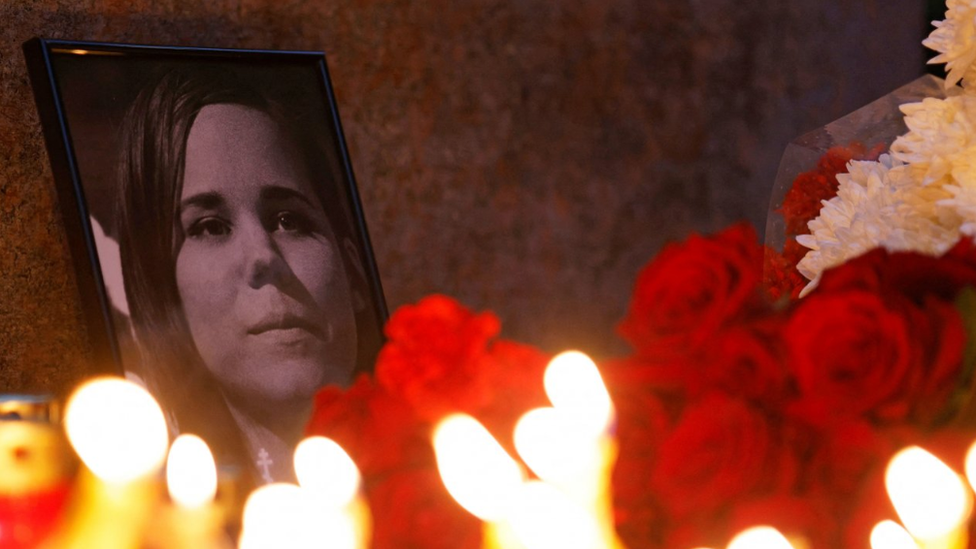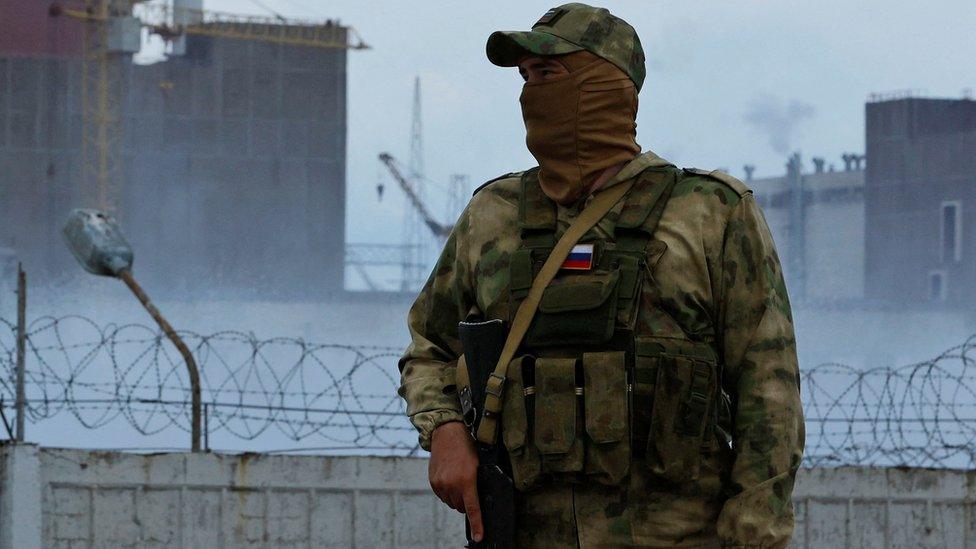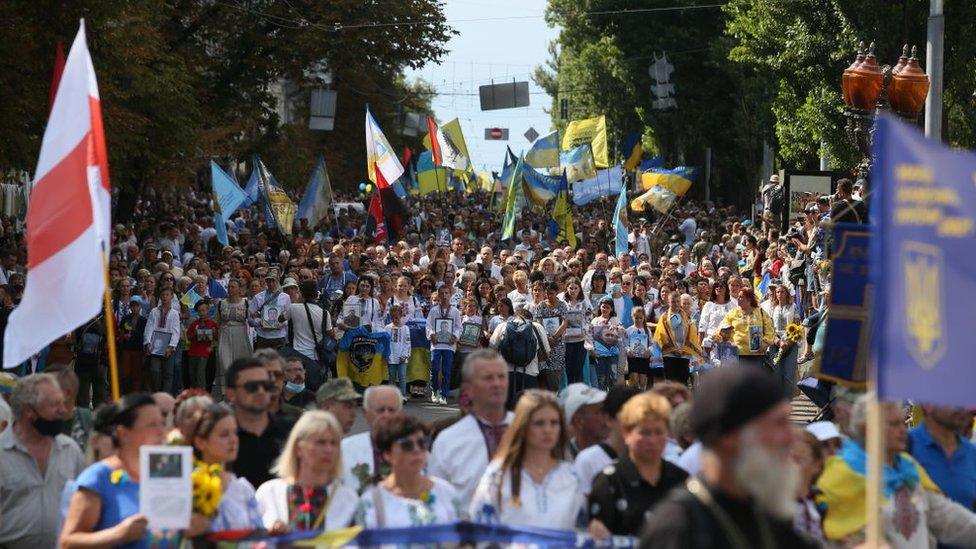Ukraine round-up: Russia blames Ukraine for Dugina killing and mass events banned in Kyiv
- Published

Russia has accused Ukraine of being responsible for killing the daughter of a prominent ultra-nationalist in a car bomb explosion on Saturday night.
Darya Dugina, a 29-year-old journalist, died while driving near Moscow.
Russian media reported that her father, the radical philosopher Alexander Dugin, an ally of Vladimir Putin, was supposed to be travelling in the vehicle with her, leading to speculation that he was the intended victim.
Ukraine has denied playing any part in the explosion, but on Monday, Russia's Federal Security Service (FSB) said it had solved the case.
Without providing any evidence, it claimed that a Ukrainian woman had moved to Russia in July and followed Ms Dugina around - even living in the same apartment block - in preparation for the attack.
Within Russia, there has been much reaction among pro-Kremlin commentators regarding her death.
But for ordinary Russians, the death of Ms Dugina - a very minor figure in Russia - will have made little impact, write's the BBC's Will Vernon in Moscow. Many will, however, be worried about the worsening security situation.

Russia appeals for new recruits

Tens of thousands of Russian troops have been killed or wounded since the start of the war, say Western officials
In the face of significant losses during this war, Russian authorities have launched a recruitment drive to try and attract more soldiers to its army.
As part of the drive, they are offering volunteers huge sums of money, plots of land and even premium places for their children in Russian schools.
Recruiters have even been visiting Russian prisons to sign up inmates, promising them freedom and money.
The BBC's Will Vernon went to Volosovo, in western Russia, where he discovered that not everyone is so enthusiastic about the war.

Kyiv bans mass events ahead of Independence Day

Large crowds gathered in Kyiv to celebrate 30 years of independence on Ukrainian Independence Day in 2021
Ukrainian officials have banned mass events in the capital Kyiv ahead of the country's Independence Day on 24 August, citing a heightened threat of more severe attacks by Russia.
Ukrainian President Volodymyr Zelensky warned Russia could do "something particularly ugly" ahead of Wednesday's celebrations.
The northern city of Kharkiv will also impose a curfew from Tuesday evening until Thursday morning, regional officials said.
In Mykolaiv, near the Black Sea, people are being discouraged from gathering in large groups, and the regional governor is urging people to work from home on Tuesday and Wednesday.